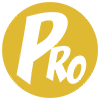The Language Of The Digital Casino: How We Talk Online And Why It Matters
If anyone ever tells you that digital communication isn’t interesting or different from other kinds of written communication - well, first up, we’d say they’re not really telling the truth there. In actual fact, the digital world has done some extraordinary, enormously interesting things to the way that we talk to each other in the last few decades - and linguists all over the place are pretty fascinated by how this is shaking out. There are a whole bunch of ways that this plays out, and we’re going to spend a bit of time unpicking them and finding out the truth, as well as why.
First things first: a quick test. If I wrote :), you would know what I meant, wouldn’t you? And yet not so long ago, this would have been a baffling combination of symbols, which would have confused everyone (and almost certainly got red-pen-scribblings on your essay if you’d tried it at school… although to be fair, that might still be the case). But now, we pretty much all know - even the less technically-inclined among us - that :) means a smiley face, and indicates the sender is happy.
















then €5.99/month after 14 days
Start your 14-day free trial now to publish your sponsored content. Cancel anytime.